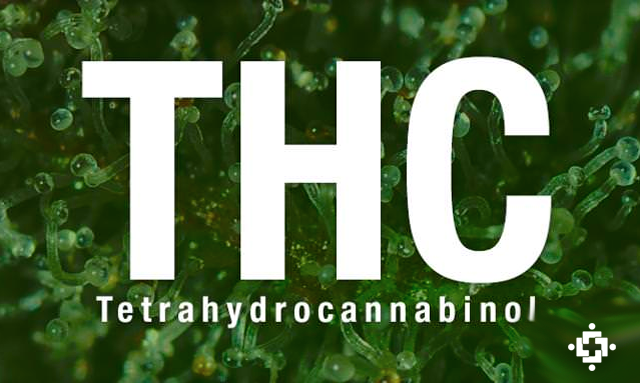
Tetrahydrocannabinol (THC): The Most Popular Cannabinoid
What is Tetrahydrocannabinol (THC)?
Tetrahydrocannabinol, or THC as it is commonly referred to as, results from numerous changes and reactions in the cannabis plant. For starters, the cannabis plant produces a cannabinoid known as Cannabigerolic acid (CBGA).
From here, a portion of the CBGA is then converted to tetrahydrocannabinol carboxylic acid (THCA), which only becomes THC when exposed to heat or UV light. Because of this decarboxylation process, most of the THC you consume when ingesting or inhaling the cannabis plant actually started as THCA — not THC.
Cannabigerolic acid (CBGA) is the precursor to Tetrahydrocannabinol (THC), Cannabidiol (CBD), and Cannabichromene (CBC).
When lab testing cannabis for THC content, companies like Steep Hill Halent Laboratories (in California) and Sunrise Analytical (in Oregon) actually measure the amount of THCA in a sample and combine it with the amount of THC detected by their machines to determine the total amount of THC content in any given plant.
What Are the Effects of THC?
Tetrahydrocannabinol (THC) is a phytocannabinoid that activates the CB1 and CB2 receptors in the body. The CB1 receptors are generally located in the nervous system, and they are responsible for the psychoactive effect that THC can cause. The CB2 receptors, on the other hand, are more prevalent in the immune and gastrointestinal systems, and play a major role in minimizing inflammation.
One instance where the benefits of THC are obvious is the the treatment of Crohn’s Disease. A recent study published by Meir Medical Center and Sackler Faculty of Medicine found that THC can actually lead to a remission of Crohn’s Disease. The study suggests it is the interaction between THC and the CB2 receptor in the human body that minimizes the inflammation caused by Crohn’s Disease.
THC has been linked to an improvement in symptoms of Tourette’s disorder, glaucoma, and various eating disorders.
In terms of the CB1 receptor, a study performed by the University of Haifa in Israel showed that THC can help minimize the negative effects of stress. Because THC activates the CB1 receptor, it promotes a process called Long Term Potentiation, which improves the ability to learn and process complex ideas. THC also can help protect spatial memories, due to its affect on the hippocampus.
How Can THC Help?
Protection from stress isn’t the only psychological benefit of tetrahydrocannabinol (THC). Professionals in the psychological field have found it useful in the treatment of post-traumatic stress disorder (PTSD) and exposure-based phobia therapy. These are just two of the many forms of anxiety that THC can help manage. In addition to these exciting findings, THC is also showing signs that it can be used as a regulator of adult brain development (see Neuroplasticity).
THC has been used to promote a healthy appetite in patients suffering from eating disorders, AIDS, and those undergoing chemotherapy.
THC is not only useful for patients suffering from debilitating health conditions. In fact, there is a good bit of evidence that suggests that the cannabinoid is even beneficial as a daily supplement.
Not only has THC shown promise in regulating appetite, but a recent study out of Israel concluded that incredibly small doses of THC can even help prevent heart attacks. The same study also found micro-doses of THC could be a useful preparation for heart surgery as it minimized the amount of lasting damage in cardiac tissue post-operation.
THC Provides a Variety of Health Benefits
Strains high in THC, such as Cherry Lopez, Royal Kush, and Godfather OG, tend to offer a more spacey/zone-inducing effect that can lead to feelings of anxiety in patients who consume too much THC in one sitting. Because of this, patients who suffer from severe anxiety are often steered away from strains with abnormally high levels of THC. That being said, THC can still be quite useful for managing a plethora of health conditions, especially if the administered dose is appropriately measured.
Because of its psychoactive properties, tetrahydrocannabinol (THC) has quickly rose to stardom among the many cannabinoids found in the cannabis plant. In turn, breeders have focused almost entirely producing marijuana strains with as much THC as possible, completely neglecting other beneficial cannabinoids and terpenes in the process.
Luckily for patients, this trend is quickly being reversed as more and more growers begin to focus on whole plant medicines to meet the market’s increasing demand. In fact, cannabis strains with high concentrations of cannabidiol (CBD) and/or terpenes are making their way back into the mainstream.